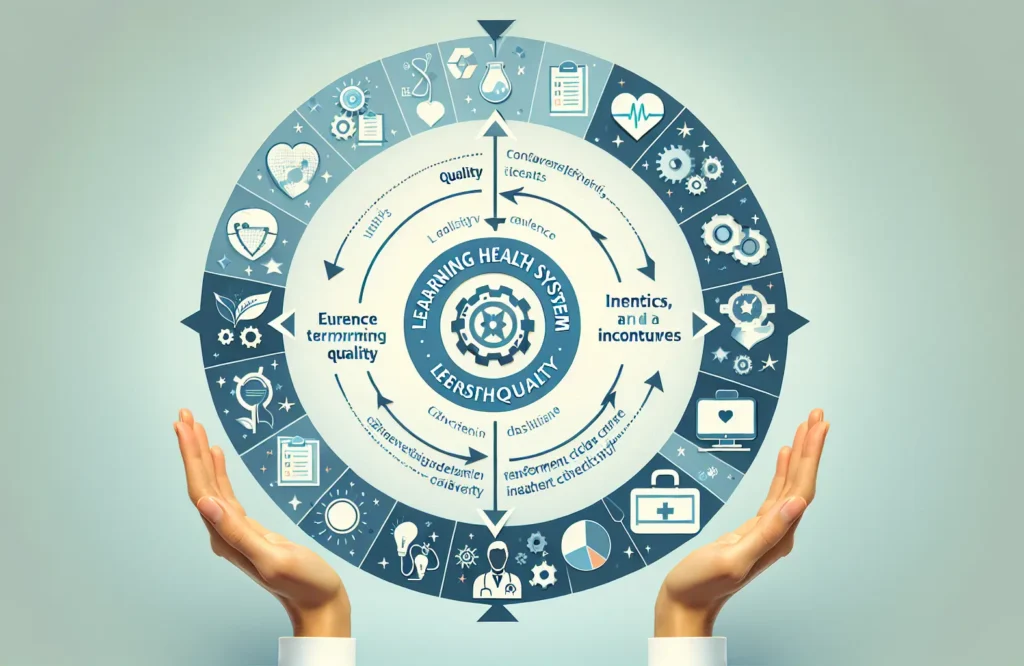
By CAFMI AI From New England Journal of Medicine
The concept of a Learning Health System (LHS) represents a transformative approach to healthcare that aims to continuously improve quality, outcomes, and value by integrating science, informatics, incentives, and culture within care delivery processes. Unlike traditional healthcare models that often operate in silos, an LHS functions with a dynamic and iterative cycle where best practices are embedded seamlessly into routine care, and new knowledge is generated as a by-product of every patient encounter. This continuous learning loop is driven by collaboration among diverse stakeholders including patients, clinicians, health care organizations, researchers, and policymakers. These shared commitments are essential because they ensure that advancements in evidence-based medicine and innovative technologies are rapidly translated into clinical practice, thereby directly benefiting patient care. Importantly, the LHS framework prioritizes patient-centeredness and health equity, striving to reduce disparities and tailor care to individual patient needs.
Central to the successful implementation of a Learning Health System is the use of interoperable data systems and advanced health information technologies. Electronic health records (EHRs), patient registries, and pragmatic clinical trials integrated into everyday clinical workflows serve as pillars for capturing real-time data that inform continuous improvement. These technologies enable healthcare providers to analyze aggregated patient data and derive actionable insights that refine treatment protocols and health outcomes. Nevertheless, the journey to such an integrated system is fraught with challenges. These include concerns about data privacy and security, variability in data standards that can impede system interoperability, and workforce readiness requiring robust training and education to navigate new digital tools effectively. Resistance to change within healthcare organizations is another significant barrier, often linked to cultural and organizational inertia. Overcoming these obstacles requires strong leadership at both national and local levels, the development of policies that support transparency and accountability, and incentives aligned with learning and improvement objectives.
Looking forward, Learning Health Systems are poised to harness emerging technologies such as artificial intelligence, machine learning, and precision medicine to further enhance personalized care and predictive analytics. The ongoing integration of patient-generated data from wearable devices and mobile health apps will expand the scope of data available, offering deeper insights into patient health outside traditional clinical settings. Additionally, fostering greater patient engagement and shared decision-making will be critical to achieving the full potential of LHSs. By continually adapting to new evidence, evolving technologies, and changing population health needs, Learning Health Systems can drive transformative improvements in healthcare delivery, reduce costs, and ultimately improve health outcomes on a broad scale.
Read The Original Publication Here